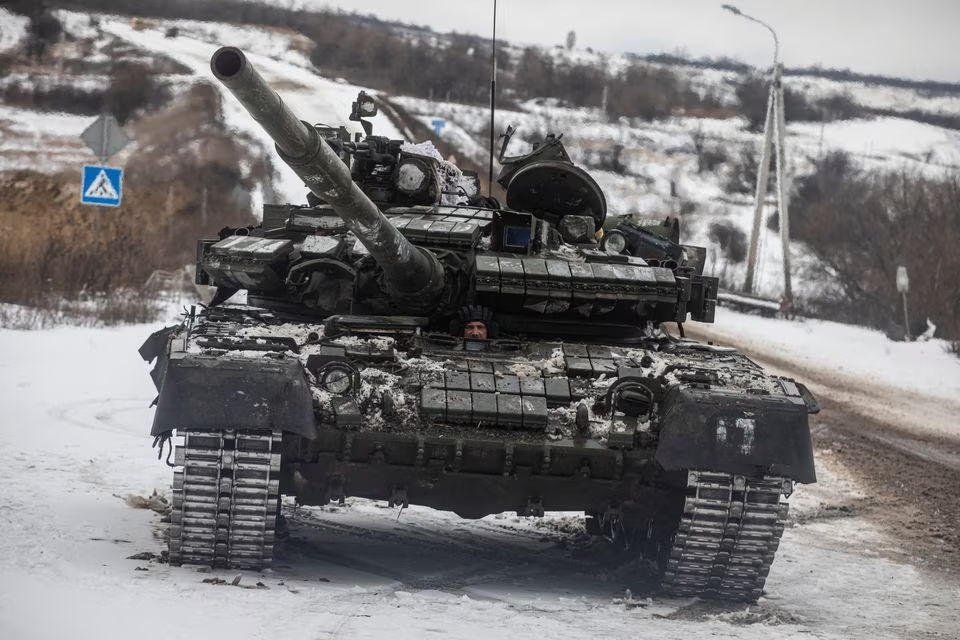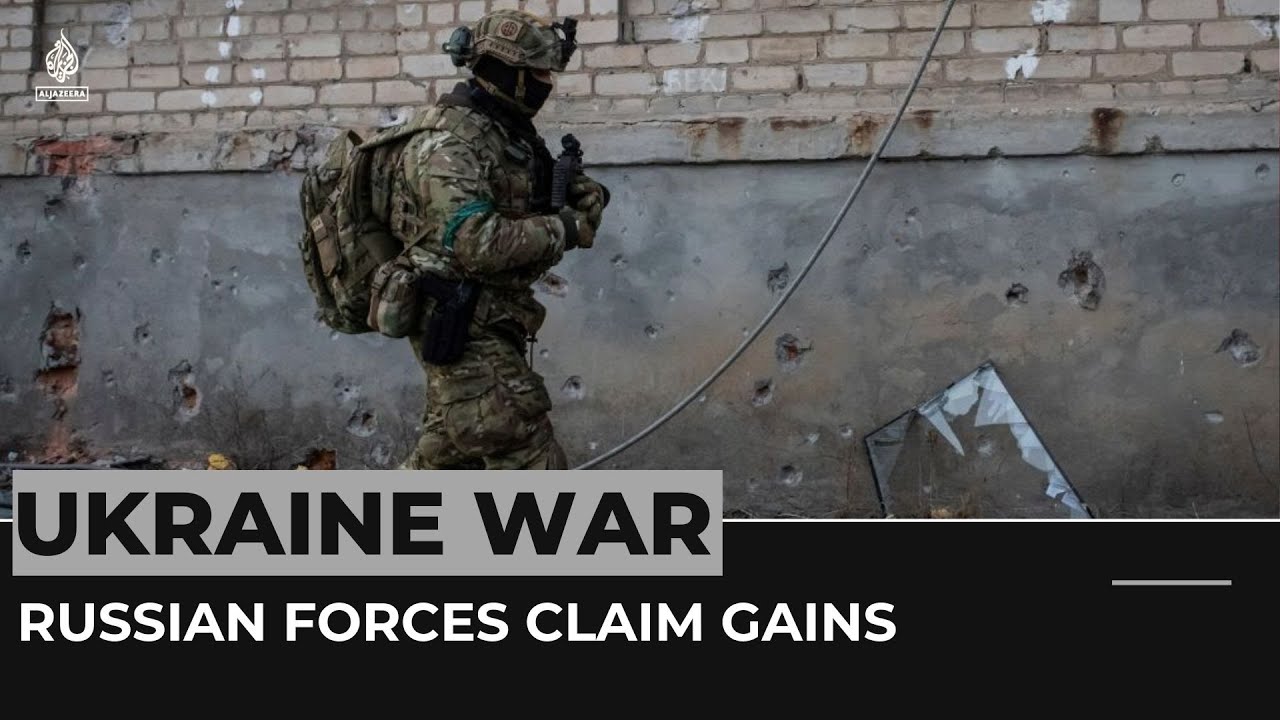Ukraine Claims To Have Repelled Russian Attacks In Luhansk Region
Ukraine claims to have repelled Russian attacks in the Luhansk region. The Ukrainian army said it had used artillery and mortars to push back the separatist forces, who had attacked Ukrainian positions near the village of Novotoshkivske.
Author:Suleman ShahReviewer:Han JuFeb 16, 20235.5K Shares462.1K Views

Ukraine claims to have repelled Russian attacksin the Luhansk region. The Ukrainian army said it had used artillery and mortars to push back the separatist forces, who had attacked Ukrainian positions near the village of Novotoshkivske.
The attack is the latest in a series of incidents that have increased tensions between Ukraine and Russia.
According to a statement from the Ukrainian military, the attack began on Monday evening and lasted for several hours.
The statement said that the separatist forces had used heavy weapons, including mortars and artillery, but that Ukrainian forces had been able to hold their positions and inflict significant casualties on the attackers.
The Luhansk region has been the site of a conflict between Ukrainian forces and Russian-backed separatists since 2014.
The conflict has led to the deaths of more than 13,000 people and has displaced more than 1.5 million others.
Despite a ceasefire agreement that was signed in 2015, fighting has continued in the region.

Ukraine war: Russia claims incremental gains, Kyiv says attacks being repelled
Increased Tension
The latest attack in the Luhansk region comes amid increased tensions between Ukraine and Russia. In recent weeks, Ukraine has accused Russia of amassing troops near its borders, raising concerns of a potential military intervention by Russia.
Ukraine's President, Volodymyr Zelensky, has called on the international community to take action to prevent a possible escalation of the conflict.
The conflict in the Luhansk region began in 2014, after Russia annexed Crimea from Ukraine. Separatist forces in the Luhansk and Donetsk regions of Ukraine, with support from Russia, declared independence and have been engaged in a conflict with Ukrainian forces ever since.
The ceasefire agreement that was signed in 2015 has been repeatedly violated, with sporadic outbreaks of violence reported in the region. The latest attack is one of the most serious incidents in recent months, and has raised concerns that the conflict could escalate further.
International Community Expresses Concern
The latest incident in the Luhansk region has raised concerns among the international community.
Russia has denied any involvement in the conflict in Ukraine, and has accused the Ukrainian government of being responsible for the ongoing violence in the region.
However, the international community has largely rejected Russia's claims, and has called on Russia to respect Ukraine's sovereignty and territorial integrity.
The situation in the Luhansk region remains volatile, and it is unclear whether the ceasefire agreement will hold.
The international community has called for both sides to return to the negotiating table, and to work towards a peaceful resolution to the conflict.
However, with tensions high and both sides entrenched in their positions, it remains to be seen whether a peaceful resolution will be possible.
The United States has condemned the attack and called on Russia to cease its support for the separatist forces.
The UK's Foreign Secretary, Liz Truss, has also expressed concern and called on both sides to respect the ceasefire.
“„[It was] deeply concerned by the recent escalation of violence in eastern Ukraine.- US State Department
The statement added that the US was "calling on Russia to immediately cease its support for the separatists and to respect Ukraine's territorial integrity and sovereignty".
The European Union has also expressed concern about the situation in the Luhansk region.
In a statement, the EU's High Representative for Foreign Affairs and Security Policy, Josep Borrell, said that the attack was a "serious violation of the ceasefire" and called on both sides to "return to dialogue and respect for the ceasefire".
Final Words
Latest attack in the Luhansk region has highlighted the fragility of the ceasefire agreement between Ukraine and the Russian-backed separatists.
The incident has raised concerns among the international community, with the US, UK, and EU calling for an immediate cessation of hostilities and a return to dialogue.
It remains to be seen whether the situation will escalate further, or whether the parties will be able to reach a peaceful resolution to the conflict.

Suleman Shah
Author
Suleman Shah is a researcher and freelance writer. As a researcher, he has worked with MNS University of Agriculture, Multan (Pakistan) and Texas A & M University (USA). He regularly writes science articles and blogs for science news website immersse.com and open access publishers OA Publishing London and Scientific Times. He loves to keep himself updated on scientific developments and convert these developments into everyday language to update the readers about the developments in the scientific era. His primary research focus is Plant sciences, and he contributed to this field by publishing his research in scientific journals and presenting his work at many Conferences.
Shah graduated from the University of Agriculture Faisalabad (Pakistan) and started his professional carrier with Jaffer Agro Services and later with the Agriculture Department of the Government of Pakistan. His research interest compelled and attracted him to proceed with his carrier in Plant sciences research. So, he started his Ph.D. in Soil Science at MNS University of Agriculture Multan (Pakistan). Later, he started working as a visiting scholar with Texas A&M University (USA).
Shah’s experience with big Open Excess publishers like Springers, Frontiers, MDPI, etc., testified to his belief in Open Access as a barrier-removing mechanism between researchers and the readers of their research. Shah believes that Open Access is revolutionizing the publication process and benefitting research in all fields.

Han Ju
Reviewer
Hello! I'm Han Ju, the heart behind World Wide Journals. My life is a unique tapestry woven from the threads of news, spirituality, and science, enriched by melodies from my guitar. Raised amidst tales of the ancient and the arcane, I developed a keen eye for the stories that truly matter. Through my work, I seek to bridge the seen with the unseen, marrying the rigor of science with the depth of spirituality.
Each article at World Wide Journals is a piece of this ongoing quest, blending analysis with personal reflection. Whether exploring quantum frontiers or strumming chords under the stars, my aim is to inspire and provoke thought, inviting you into a world where every discovery is a note in the grand symphony of existence.
Welcome aboard this journey of insight and exploration, where curiosity leads and music guides.
Latest Articles
Popular Articles